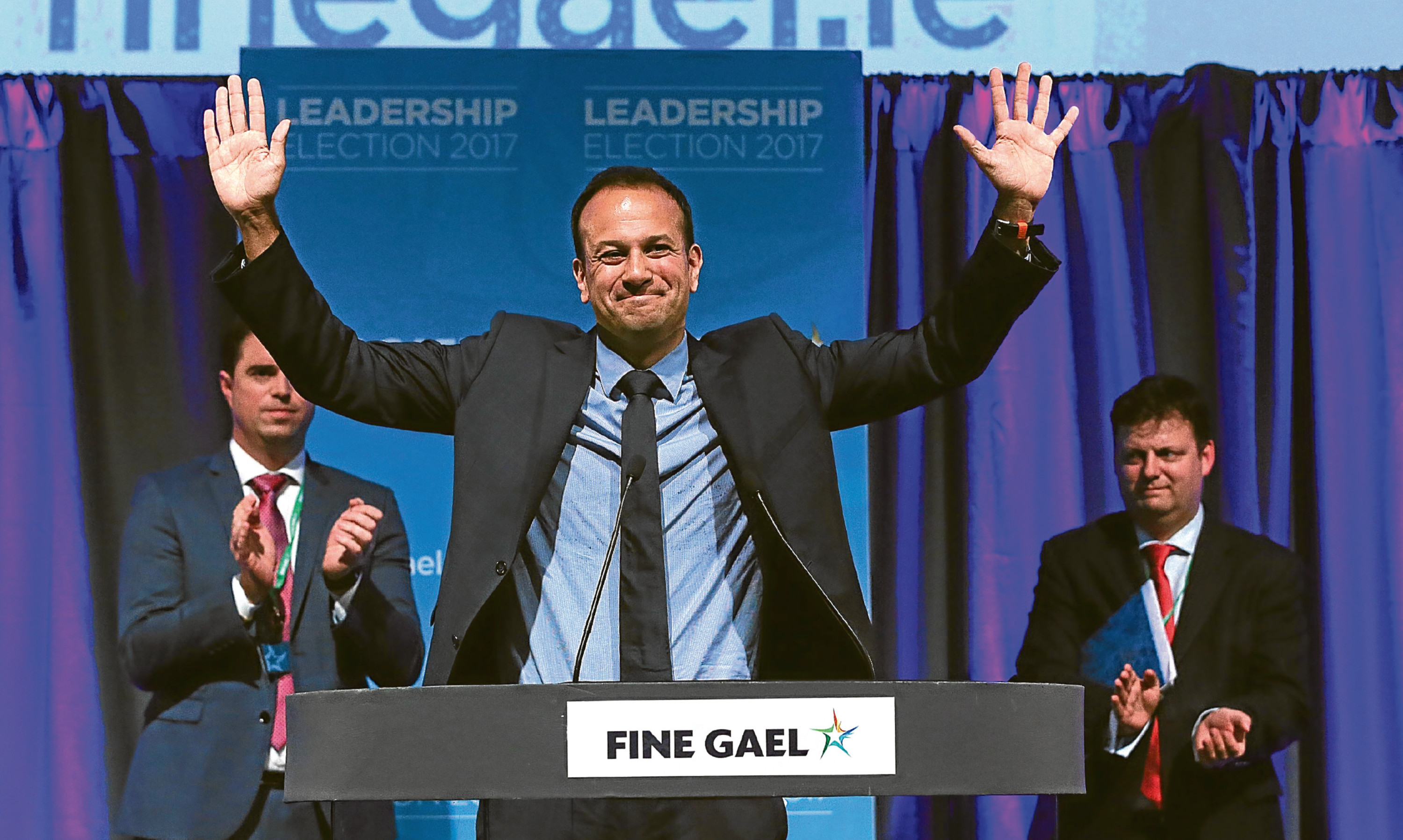This is a column about condoms and voting.
It starts in Ireland, where in the early 1980s there was a popular book called The Begrudger’s Guide. It tapped into the prevailing mood of resentment.
Ireland was a country convinced that all was doomed.
My pal suspected some of this might be down to a lack of sex.
We were off to read history at Trinity College, Dublin and he brought a job-lot of contraceptives because in 1984 it was illegal to sell condoms in the Republic.
My pal reckoned he was on to a money-spinner if he brought all these rubbers into the country and sold them on.
We both imagined, as only the stupid can, that the Irish were abstaining for the lack of a prophylactic.
The jar of condoms was barely touched by the end of the year – a sign that we were not quite as irresistible as we fancied and that it was possible to get contraceptives quite easily, despite the law.
Ireland was a country where divorce was illegal, abortion a thing which happened in Godless England and the Taoiseach had been accused of gun-running to the IRA.
The big sign this was about to change came with an election.
The office of president was a place for elderly politicians to quietly decline.
Then in 1990 Ireland surprised itself by electing Mary Robinson.
She was everything Ireland was supposed to hate – a woman, a lawyer, from “sophisticated” Dublin, not the country, and supported by the Labour Party. Until her success, that list was thought electoral poison.
Ireland had never had a woman president. All but one previous holder was from the Fianna Fail party. They’d all been ex-politicos, often associated in some way with the nationalist cause and the related need to appear “authentically Irish” (male, tweeds, pint of plain).
The nation startled itself with its choice.
Robinson became the figurehead of the future – she represented potential, not the past.
The office of the president took on a new significance and Robinson went on to an important career in the United Nations.
From 1990 on, the Irish economy boomed, the gloom lifted and the quality of life matched other successful European nations.
Something else was happening in 1984, when my pal was setting up as a condom supplier.
Aids, a condition which attacked people’s immune systems and was passed on through bodily fluids, struck fear across the world because it was incurable.
In response, the term ‘safe sex’ was coined, which meant using a condom.
In Ireland, Aids reinforced an existing, faith-based prejudice against gay men. It was common to hear that Aids was “God’s verdict on queers”.
In a vote last Friday in Dublin, the gay son of an Indian immigrant was elected leader of Fine Gael.
A quarter of a century after Ireland moved on from the grey men of the republican movement, it was now moving on from the white Catholic hegemony.
Next week Leo Varadkar will be elected Taoiseach (First Minister) and the Ireland where pots of condoms were seen as valuable contraband will be gone forever, with the sexual and social prejudice that went with it.
On his election to party leader Leo Varadkar said: “Around the world people look to Ireland to be reminded that this is a country where it doesn’t matter where you come from but, rather, where you want to go.
“When my father travelled 5,000 miles to build a new home in Ireland, I doubt he ever dreamed that his son would one day grow up to become its leader and that, despite his differences, his son would be treated the same and judged by his actions and character, not by his origins or identity.”
Perhaps this is no surprise – Ireland became the first country to legalise same sex marriages by popular vote in 2015.
It makes me weep with joy at the potential of the human race to change and for the better.
If Ireland, a country once suffocated by its history and social conservatism, can within a matter of decades become a place where Varadkar’s words are genuine and meaningful, then any country can change.
We can change – we can challenge the prejudices which still exclude people and the poverty which deprives people of choice.
Maybe not at this election, maybe not the next but it is within us, as it is within everybody.
We are all common people and the common people have the power to change common society and with it, the world.
Within our thoughts and arguments lies the energy to make things different and better.
This is obscured by this cynical election and its say-nothing campaigns but that isn’t to say we are obscured or irrelevant.
Within my adult lifetime, Ireland has experienced a calm revolution.
My pal is now married with two beautiful children – ask him nicely and he could probably sell you a 30-year-old condom, he’s still got plenty.
He’ll be voting today, as will I and our lovers, children and friends – voting because we have seen change and know it is possible anywhere.
